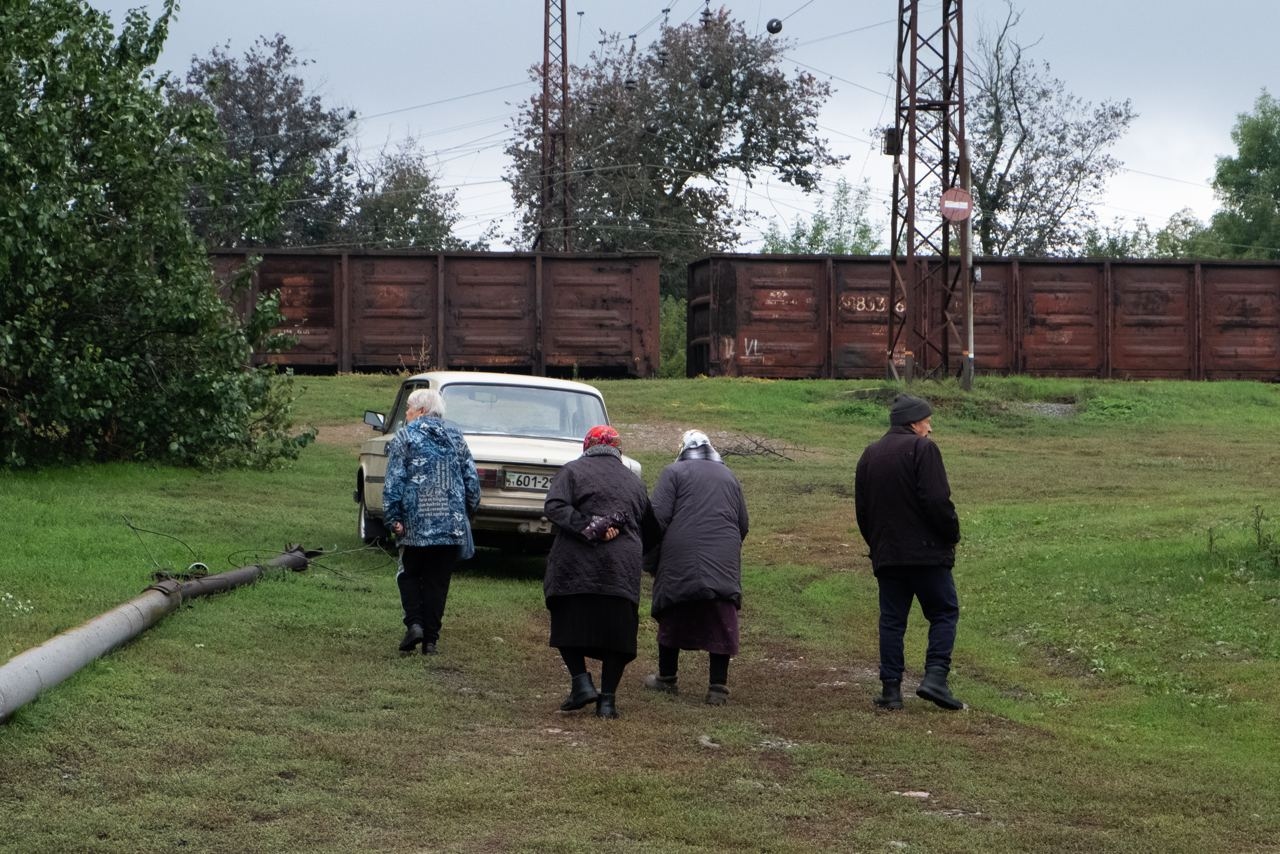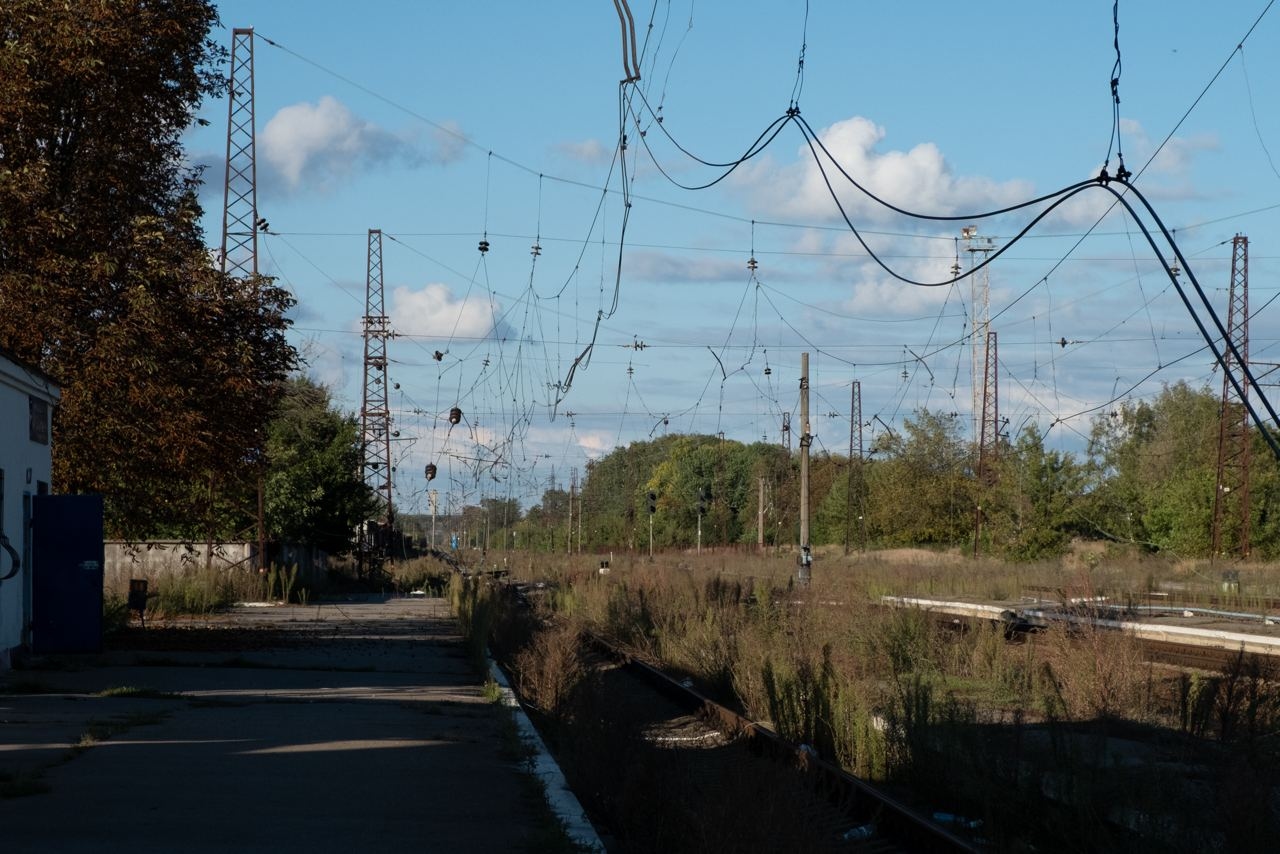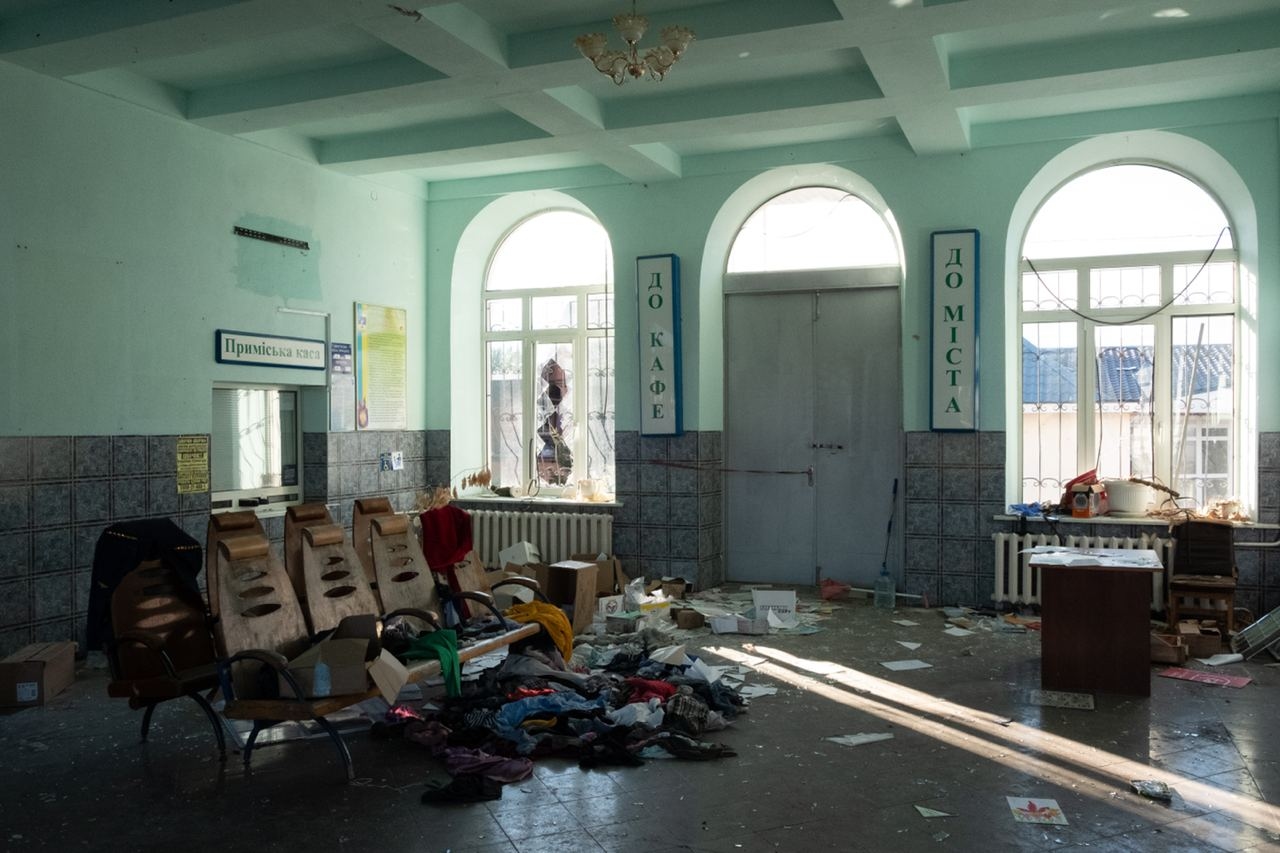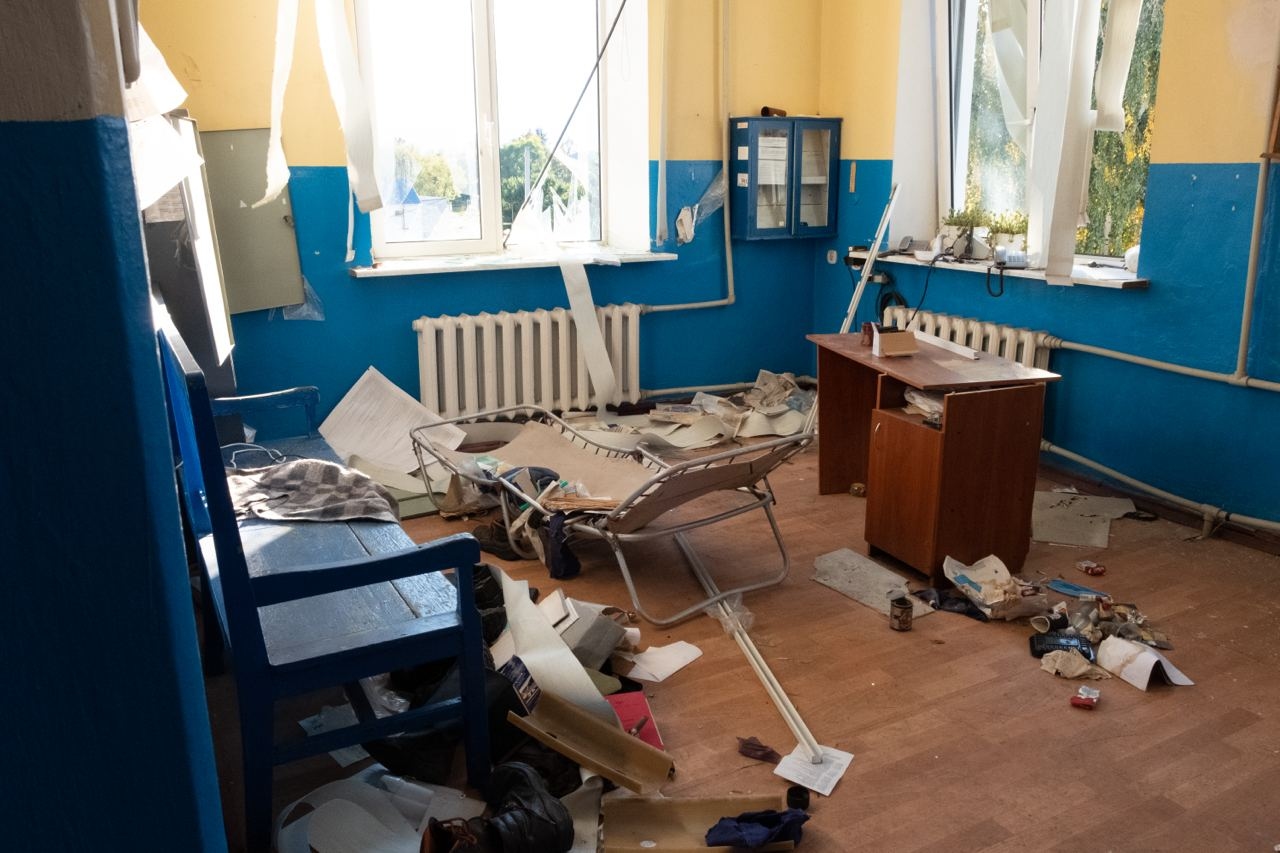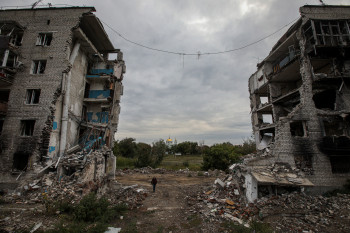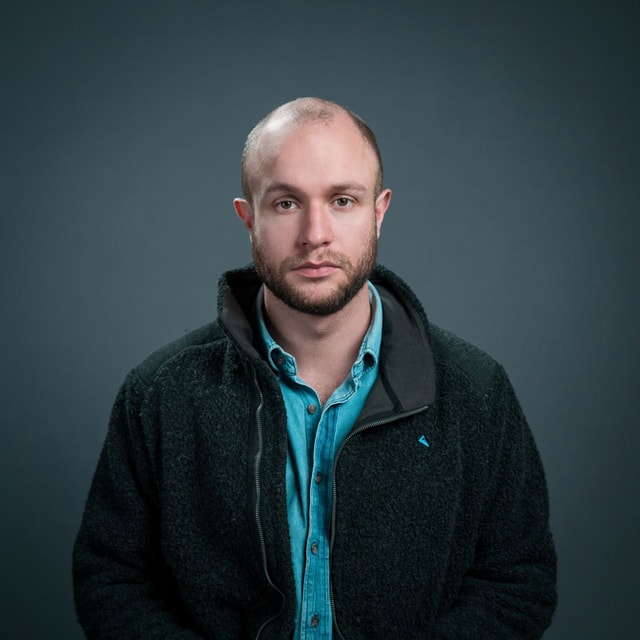Russian torture chambers survivor: 'Every inch of me was in agony'

WARNING: This article contains very graphic scenes that readers may find disturbing.
KOZACHA LOPAN, Kharkiv Oblast — Ten days have passed since his town was liberated from Russian troops, but Vitaliy Oliia is still afraid to leave his home at night.
“I never go any further than the next house, that’s plenty for me,” he told the Kyiv Independent. “Day or night, whenever I hear a car coming down the road, I’m instantly on alert.”
Oliia, 40, has good reason for his paranoia. Targeted by Russian occupying forces for his past military service in Ukraine, he was held captive for over a month in two separate locations. Kept in subhuman conditions, Oliia says he was subject to several rounds of unimaginably brutal physical and psychological torture.
Oliia spoke at length to the Kyiv Independent at his home in Kozacha Lopan in Kharkiv Oblast, four kilometers from the state border with Russia.
Russia occupied the town shortly after launching a full-scale invasion of Ukraine. Nearly seven months later, on Sept. 11, as Russian defenses collapsed in the area, Kozacha Lopan was liberated without a fight.
In the week following the swift liberation of the area, makeshift torture chambers began to be discovered in cellars and other buildings in almost every settlement. In these rooms, Russian soldiers are reported to have terrorized the local population, arresting, interrogating, and often torturing anyone with a connection to the Ukrainian military or deemed otherwise suspicious.
According to Oliia’s testimony, one of the largest such facilities, of a scale unlike any other discovered so far, was located just outside Kozacha Lopan. Only over the last few days has Oliia been able to mentally decompress enough to tell his story.
Marked man
Despite lingering heart problems and broken ribs not allowed to properly heal, Oliia held himself with a relaxed but straight posture and spoke with the calm, monotone voice of a career military man.
He served for three years between 2017-2020 in the famous Aidar Battalion, by then incorporated into the Ukrainian Ground Forces. Serving with distinction all along the front line of the mostly static war in Donbas, which was initially launched by Russia in 2014, Oliia was at various times a company commander, gunner on an infantry fighting vehicle, and a fire support commander.
This background made Oliia a high-priority target for the bands of Russian proxy soldiers tasked with “filtering” the towns and villages they occupied, rounding up those who had served in Donbas and their close connections. When they arrived at his house on March 22, they already knew who they were looking for.
‘'Vitalik?’ ‘Yes, it’s him', and I was already on the ground,” he said. “Minutes later I was in the car.”
As per his own understanding, Oliia was betrayed by a collaborant who dealt specifically with veteran affairs in the municipal government, and thus had access to all their data. “When they came in, she changed colors and happily ran around pointing us out — 'that one, that one, that one',” he said. “I need to be careful with what I say, but as far as I know, our police are catching these rats as we speak.”
The car pulled up to the stout blue railway station building in the center of Kozacha Lopan, where Oliia was dragged out and beaten for the first time, on the street in broad daylight.
“As soon as we got out of the car they hit me in the ribs and in the back with their rifle butts,” he said. “By then I understood that I had a difficult conversation ahead of me.”
Brandishing police batons, Oliia’s captors put him up against the wall. “I could tell they were about to start thrashing me with them,” he said, “their arms were shaking with adrenalin already.” The first blow was administered straight to the back of Oliia’s neck, and he immediately dropped to the ground. “It went straight through all my nerves, I'd never been hit like that before,” he said.
“They put their boot into me from all sides, they broke two ribs here near my heart and one by my spine,” he said. “Even before they started electrocuting me, my heart was pounding.” The soldiers gave Oliia a cigarette and took him into the building.
Unbearable pain
With large windows letting in plenty of natural light, the room on the second floor of Kozacha Lopan's train station does not look like an average torture chamber. “I remember which room they took me to,” Oliia recalled. “The others all had tiles but when I fell to the ground my head hit linoleum instead.” Upon investigation of the empty building, through which demining and investigative teams have already passed, the Kyiv Independent found the room closely matching Oliia’s description.
Here, Russian soldiers blindfolded Oliia and taped his hands behind his back. Before the electrocution began, Oliia suffered one more fierce beating, with several men kicking him while he lay on the ground trying to protect his head. “It was a mistake to leave my torso unprotected,” he said. “I only later realized that they weren't allowed to kick me in the head, they needed it to look nice for a YouTube video.”
Only then did the true agony begin. “As I was tied up, they pulled down my pants and underwear,” he said. “I felt them pegging something to my penis.” From there, they wrapped a wire around Oliia's right thigh and began electrocuting him repeatedly for around an hour.
Oliia’s questioning circled largely around the details of his service in Donbas, he recalls. “'The better your answers are,’ they told me, ‘the easier a time you'll have.'”
When he was arrested, Oliia's passport, military ID, and a medal awarded by the Presidential Office were all lying in plain sight but not noticed by the soldiers. His ex-wife later buried the documents in the yard, where they still remain. “If they had known about that medal, there is no way I would have survived their torture,” he said. “I had to keep my story straight every time, otherwise it would have been over.”
During the electrocution, Oliia recalls losing consciousness repeatedly, as his screams left him short of breath. His captors would immediately stop the current, promptly resuming when he came to his senses. At one point, they poured water on the burn, pretending to ease the pain, but actually only enlarging the area receiving a direct shock. “It was indescribable,” he said, “every inch of me was in agony.”
Around half an hour in, Oliia’s burnt skin started to give off smoke. “At that moment, someone came into the room, pointed at me and said, ‘Oh look, look how he's burning, never seen something like that before!’'' he said. “By the time they were finished, the skin on my leg where the wire ran was crisp to the touch, like roast pork.”
Criminal content creators
Following the torture session in the railway station, Oliia was taken to a nearby cellar, where dozens of others were being held.
The Kyiv Independent visited an underground cellar near the station where city authorities say that many residents were held together in a large cage, brought out one at a time to be tortured in front of their fellow captives. Some elements of Oliia's vague description match the details of this space, but whether this is exactly where he was held could not be verified.
"There were many of us, cramped and curled up together," he said. "There was an old man among us, always crying. They beat him very severely." The captives were given soup in small plastic containers once a day around lunchtime. They slept without any bedding on a concrete floor, suffering as temperatures regularly dropped below zero at night.
On the fifth day of Oliia’s imprisonment, two young Russian men in civilian clothes arrived to film a sham confession video, of which hundreds have been made with Ukrainian prisoners of war and civilians, and which are a blatant violation of the Geneva Convention.
Ollia was sat down in a chair and given a cigarette and a cup of hot sweet tea. “We'll be filming a short interview with you,” one of the young men reportedly told him. “Answer carefully and they won't beat you up in between cuts.”
The questions and answers were not discussed in advance. “All they said was that when asked if I participated in the killing of Russian civilians and so on, I confess,” he said, “not only admit to it, but to do so with sincerity, good intonation, and acting".
The video, still online on Russian social media, provides an insight into Oliia’s physical and mental state at the time. Frightened and under great stress, he twitches nervously as the video clumsily jump-cuts between tales of drunkenly shooting at civilians, and a call for Ukrainian soldiers to surrender to Russia.
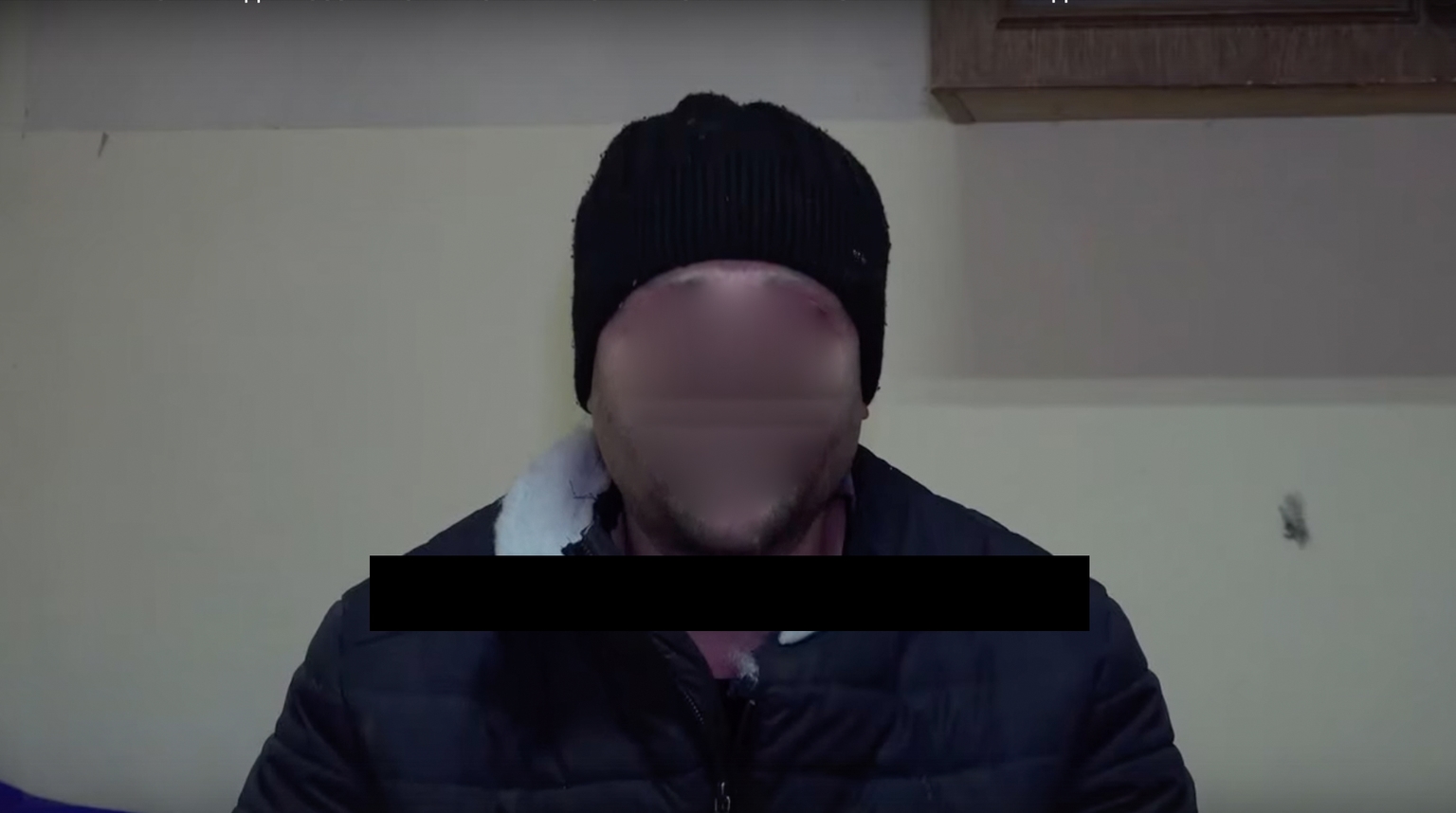
After the “interview,” the videographers turned away to check over their material. "At that point,” Oliia said, “one of the soldiers yelled at me, saying 'You gave the wrong answer? Now you'll get it!'” The videographers told the soldier that the answers were good, but Ollia got beaten anyway.
Modern gulag
After the interview was complete, Ollia was taken to Hoptivka, the Ukrainian border crossing point just north of Kozacha Lopan on the main highway between Kharkiv and Russia’s Belgorod. As a Russian interrogation facility, the checkpoint building was nicknamed Zero.
There, Ollia was held in a small room, no more than 18 square meters, according to his estimate, together with around forty other Ukrainians. The concrete walls and floor were constantly damp due to the lack of ventilation, while inmates relieved themselves into a bottle that was rarely emptied.
“I could hear people being tortured from the room across,” Oliia recalled. “One person was being grilled on whether he had served as a colonel, screaming "No!" over and over again.” Another voice Oliia recognized straight away belonged to someone he knew from a neighboring village. "'Whatever you want me to say, I'll say it!' he was saying, 'I can say I killed a thousand Russian children, just don't electrocute me!'"
Oliia was held at Hoptivka for over a month. He was interrogated two more times, answering the exact same questions and receiving the customary beatings to the ribs. "At one point," he said, "one of them said to the other: 'He's got three broken ribs on the left, and only one on the right, so mess him up on that side only.'"
"Honestly, the scariest thing was anytime I saw a soldier look at me," he said. "When you were blindfolded, or it was simply very dark, you felt safer, but if you see them see your face, you get the feeling they will kill you on the spot."
Medical care at Zero was practically nonexistent, even in cases of badly broken bones. "They would give you one ibuprofen pill, but only if you earned it by agreeing to a full day of work," he said. With four broken ribs, Oliia often spent entire days working on his knees. "It was forbidden to lift your eyes," he said. "They called us zeki (Russian slang for gulag or prison inmates), and that's what we were.”
One day, a senior officer came into his room to inform he would be released. Oliia understood his release was in the aim of freeing up space for new captives. "'Grab your things, you're going home,' the officer told me, to which I said 'Everything that I have, I have on me. I'm ready.'"
Oliia was released onto the Kharkiv-Belgorod highway with a sack over his head and told not to stray from the road on the way home. The walk in the open air was unnerving. "Until I reached the turnoff (to Kozacha Lopan) I couldn't stop looking back over my shoulder," he said. "It was all a lie, I thought; they would never let me go just like that, they would shoot me in the back of the head any moment."
After his release, Oliia was taken in one more time for interrogation by proxy soldiers unaware that he had already spent a month at Zero. Released after a brief check, Oliia lay low for the rest of the occupation, not even speaking to neighbors, who feared retribution if they were seen in contact with him.
“I look better now,” he said, “but the panic and paranoia haven’t gone anywhere."
With the liberation of Kozacha Lopan and the return of Ukrainian control of the state border with Russia, the Hoptivka building stands empty in no-man's land. In case of a new Russian offensive over the border into Kharkiv Oblast, Oliia’s hometown may once again be one of the first to come under attack.
"They came into Kozacha Lopan so quickly, caused so much pain and grief, and left just as quickly, like a Mongol raid,” he said. "I still just can’t understand what the point of it all was.”
Note from the author:
Hi, I'm Francis Farrell, reporting from Ukraine's liberated territories in Kharkiv Oblast. While Russia announces large-scale mobilization, and more stories like Vitaliy Oliia's continue to come to light, Ukraine's struggle needs more than ever to stay on the world's front page. Please consider continuing to support our reporting.

